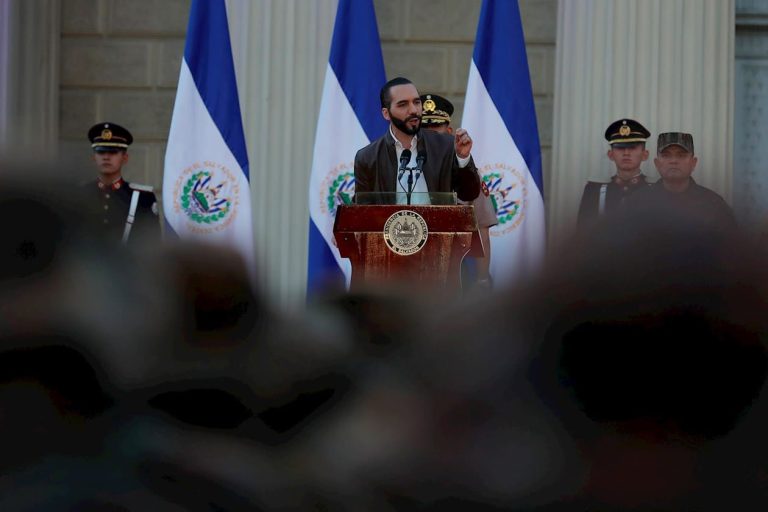12 de mayo 2021

Children of Exile: The Births “Sowing Hope” in the Camp of Nicaraguan Farmers

PUBLICIDAD 1M
PUBLICIDAD 4D
PUBLICIDAD 5D
China's interests in Central America grow and it could be the case that Beijing ends up as an ally of Bukele and Ortega, antipodes of the region

China's interests in Central America grow and it could be the case that Beijing ends up as an ally of Nayib Bukele and Ortega
Nayib Bukele is the latest figure in Latin American authoritarianism. The young businessman and marketing expert began his career in the ranks of the FMLN (Farabundo Marti Liberation Front). After being expelled from that party, he became the candidate of a rightist party. In 2019, he was elected president of El Salvador. His party at that time was the Great Alliance for Popular Unity, created in mid-decade by Antonio Saca, a former conservative president.
In line with his brief and oscillating trajectory, Bukele maintains that there are no longer rightists and leftists. He claims that contemporary politics should transcend ideologies and offer concrete answers to the common person. In a gesture linked with the new Latin American conservatism, the President quickly displayed his rejection of marriage equality, women’s right to choose, and LGBTQI activism. He sought backing from the army and tele-evangelists.
But it wasn’t until recently that Bukele began to lead the Salvadoran political regime toward an authoritarian model. During the presidential campaign and his first years in government, most of his positions were chosen with a view towards consolidating his popularity. Now controlling nearly three-quarters of Parliament, the young president has decided to move towards domination of the country’s institutions.
The Salvadoran Congress has just deposed Attorney General Raul Melara, five Supreme Court Justices and four alternate Justices. This week, in response to generalized clamor from the international community, the president declared he would continue the removal of functionaries from past administrations. The phase he used is revealing: “the people didn’t ask us to negotiate. They’re all going.”
Bukele’s justification for this isn’t generally anti-corruption, like Mexican Andres Lopez Obrador and other politicians from the region. Attorney General Melara hasn’t been accused of corruption, like some political figures of the governing party. In fact, for two years he’s been spearheading an anti-corruption offensive. However, he was appointed under the previous administration of President Salvador Sanchez Ceren, from the FMLN.
Bukele’s arguments are typical of those seeking control: he holds the majority and can control all the government powers. His justification is that total control is the aspiration of any leader or party. He claims that if the opposition were to win in Venezuela or Nicaragua, they’d do the same. Bukele has been a critic of both Nicolas Maduro and Daniel Ortega, but, clearly, his assertion was well received in Caracas and Managua.
Little by little, Bukele’s tilt towards authoritarianism has been spawning geopolitical echoes as curious as his own leadership. After a storm of criticism from the United States, the UN, and the EU, China has come out in defense of the Salvadoran president. Chinese interests in Central America are growing. Beijing could end up as an ally of both Bukele and Ortega, the two opposite poles of the region’s political spectrum.
This article was originally published in “La Razon”.
Archivado como:
PUBLICIDAD 3M
Historiador y ensayista cubano, residente en México. Es licenciado en Filosofía y doctor en Historia. Profesor e investigador del Centro de Investigación y Docencia Económicas (CIDE) de la Ciudad de México y profesor visitante en las universidades de Princeton, Yale, Columbia y Austin. Es autor de más de veinte libros sobre América Latina, México y Cuba.
PUBLICIDAD 3D